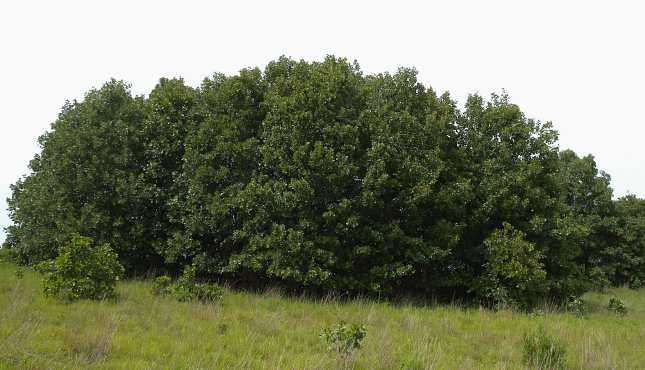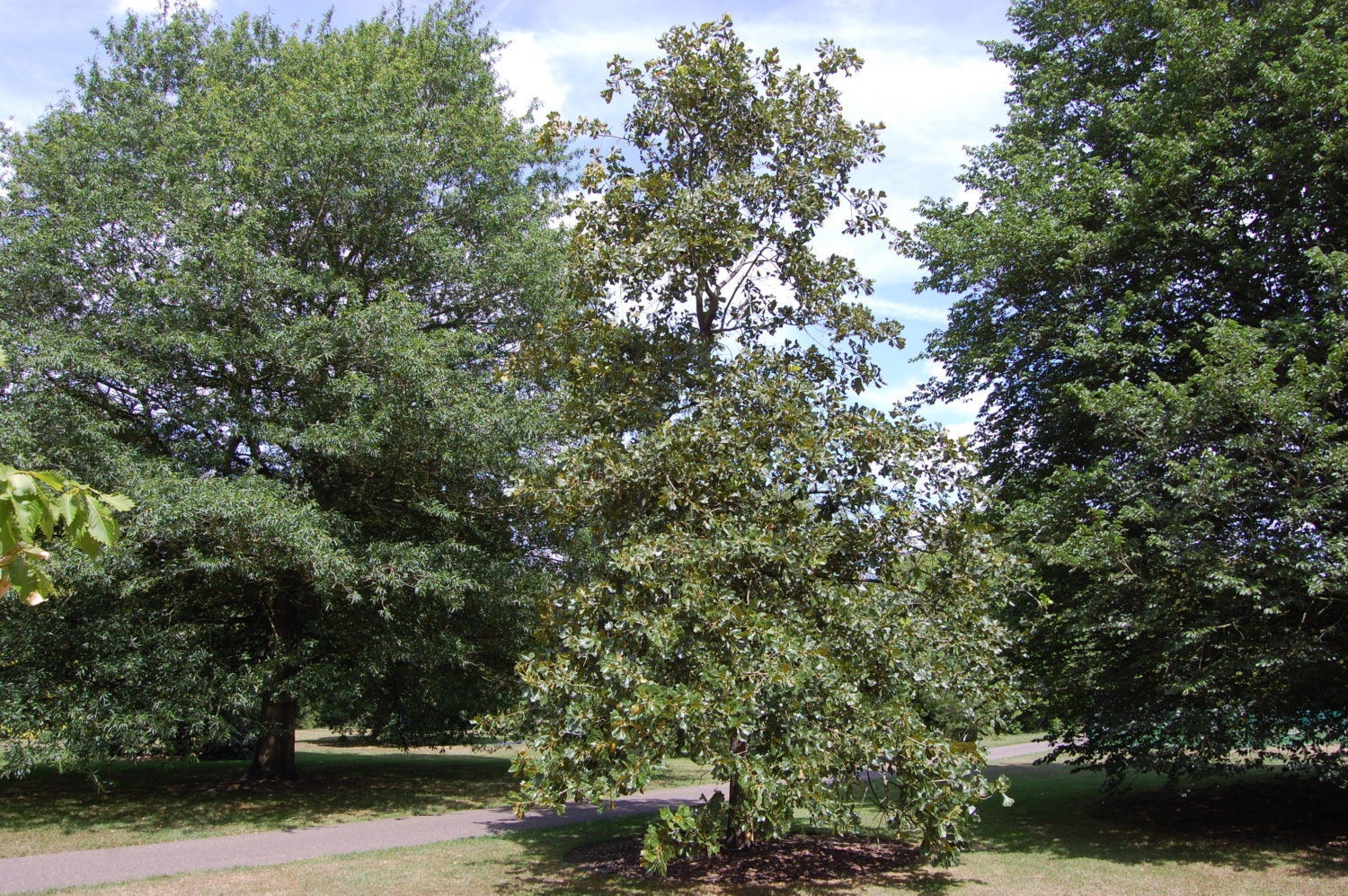

Click on image for full screen view. | Blackjack Oak, Barren Oak, Jack Oak, Black Oak Quercus marilandica Fagaceae (black oak group) Blackjack Oak grows in the eastern third of the state on acid sands, sandy loams, and clays. It grows to more than 50 feet tall and has distinctive large, three-lobed leaves that are club-shaped. It inhabits similar sites as Post Oak, Q. stellata, and is often considered an indicator of sandy, barren soils. It is drought tolerant, has dark green leaves and pleasing brown fall color, but it is very slow growing and intolerant of poorly draining or compacted soils. West of where the typical Blackjack Oak is found is a more xeric version that grows on sand or gravelly clay that is only slightly acidic. Clams casino i'm god instrumental download. Plant Habit or Use: small tree Exposure: sun Flower Color: catkins 4 to 5 in. long Blooming Period: spring Fruit Characteristics: acorn 3/4 in. long Height: more than 50 ft. Width: 15 to 40 ft. Plant Character: deciduous Heat Tolerance: high Water Requirements: low Soil Requirements: acid USDA Hardiness Zone: 6 Additional Comments: |


Click on image for full screen view. | Blackjack Oak, Barren Oak, Jack Oak, Black Oak Quercus marilandica Fagaceae (black oak group) Blackjack Oak grows in the eastern third of the state on acid sands, sandy loams, and clays. It grows to more than 50 feet tall and has distinctive large, three-lobed leaves that are club-shaped. It inhabits similar sites as Post Oak, Q. stellata, and is often considered an indicator of sandy, barren soils. It is drought tolerant, has dark green leaves and pleasing brown fall color, but it is very slow growing and intolerant of poorly draining or compacted soils. West of where the typical Blackjack Oak is found is a more xeric version that grows on sand or gravelly clay that is only slightly acidic. Clams casino i'm god instrumental download. Plant Habit or Use: small tree Exposure: sun Flower Color: catkins 4 to 5 in. long Blooming Period: spring Fruit Characteristics: acorn 3/4 in. long Height: more than 50 ft. Width: 15 to 40 ft. Plant Character: deciduous Heat Tolerance: high Water Requirements: low Soil Requirements: acid USDA Hardiness Zone: 6 Additional Comments: |
What Eats Blackjack Oak Run
4109 Blackjack Oak in ZIP code 66047 is a single family home currently listed for $394,900. This is 25% above the median of $315,000 for 66047 and N/A below the median price of $394,900 for the city of Lawrence, KS. The buck moth's life cycle: egg, larvae (caterpillar), pupae (cocoon) and adult. Their preferred habitat is dry woodland areas where scrub oak, live oak, post oak and blackjack oak trees are found. In addition, buck moths may be found on willow, hazelnut and cherry trees. The only stage that feeds is the caterpillar.
What Eats Blackjack Oak Lawn
Blackjack Oak grows in the eastern third of the state on acid sands, sandy loams, and clays. It grows to more than 50 feet tall and has distinctive large, three-lobed leaves that are club-shaped. It inhabits similar sites as Post Oak, Q. Stellata, and is often considered an indicator of sandy, barren soils.
Index of Scientific Names | Index of Common Names | Photo Gallery Index